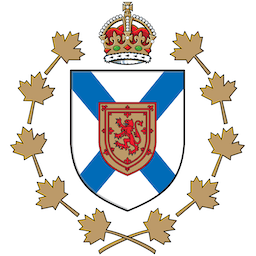Constitutional Role
The primary responsibility of the Lieutenant Governor is to act as the Crown's representative and Chief Executive Officer of the Province of Nova Scotia. The Lieutenant Governor is, therefore, apolitical.
The role of the Sovereign, and the offices of Governor General, and Lieutenant Governor are fixed in the Canadian Constitution. No changes can be made without the unanimous approval of all Provincial Legislative Assemblies, the House of Commons and the Senate in Ottawa.
Photo: His Honour the Honourable Mike Savage, Lieutenant Governor of Nova Scotia, giving the Speech from the Throne in 2025.
GOVERNMENTAL POWER
The Office of the Lieutenant Governor is the source of the government's power in Nova Scotia. Every measure and bill passed in the Nova Scotia Legislature must be given royal assent, in the name of the Sovereign, before it can become law.
The Lieutenant Governor holds the right, however, to assert royal prerogative over a measure or bill if it is deemed not to be in the public's best interest. The Lieutenant Governor can even dismiss a government if it is not acting in the best interest of the public, though this rarely happens anywhere in Canada.
The Lieutenant Governor also delivers the Speech from the Throne.
LEGISLATURE
The Lieutenant Governor acts on the advice of elected officials, but may exercise the right to be consulted, to provide encouragement to Executive Government, or to warn them if public interest is not being upheld. If confidence in Cabinet is not retained by the Legislative Assembly, the Lieutenant Governor will act in the best interest of Nova Scotians.
PREMIER OF NOVA SCOTIA
One of the Lieutenant Governor's most important responsibilities is to ensure Nova Scotia always has a Premier. If the Office of the Premier becomes vacant for any reason, it is the duty of the Lieutenant Governor to ensure the post is filled.
The Lieutenant Governor will also appoint government posts, including Deputy Ministers, provincial judges, members of boards, agencies and commissions and crown attorneys.
GOVERNMENT DOCUMENTS
Reference to the term ‘Lieutenant Governor in Council’ on government documents, such as acts of legislation, refers to the Lieutenant Governor acting on, and with, the advice of the Executive Council or Cabinet.
Throughout the tenure of a Lieutenant Governor, Orders-in-Council, Proclamations, and many other official documents will be signed thus giving them the force of law.
